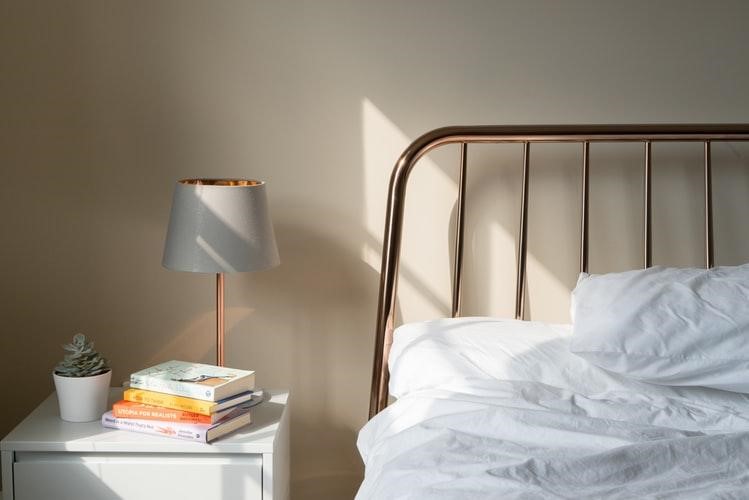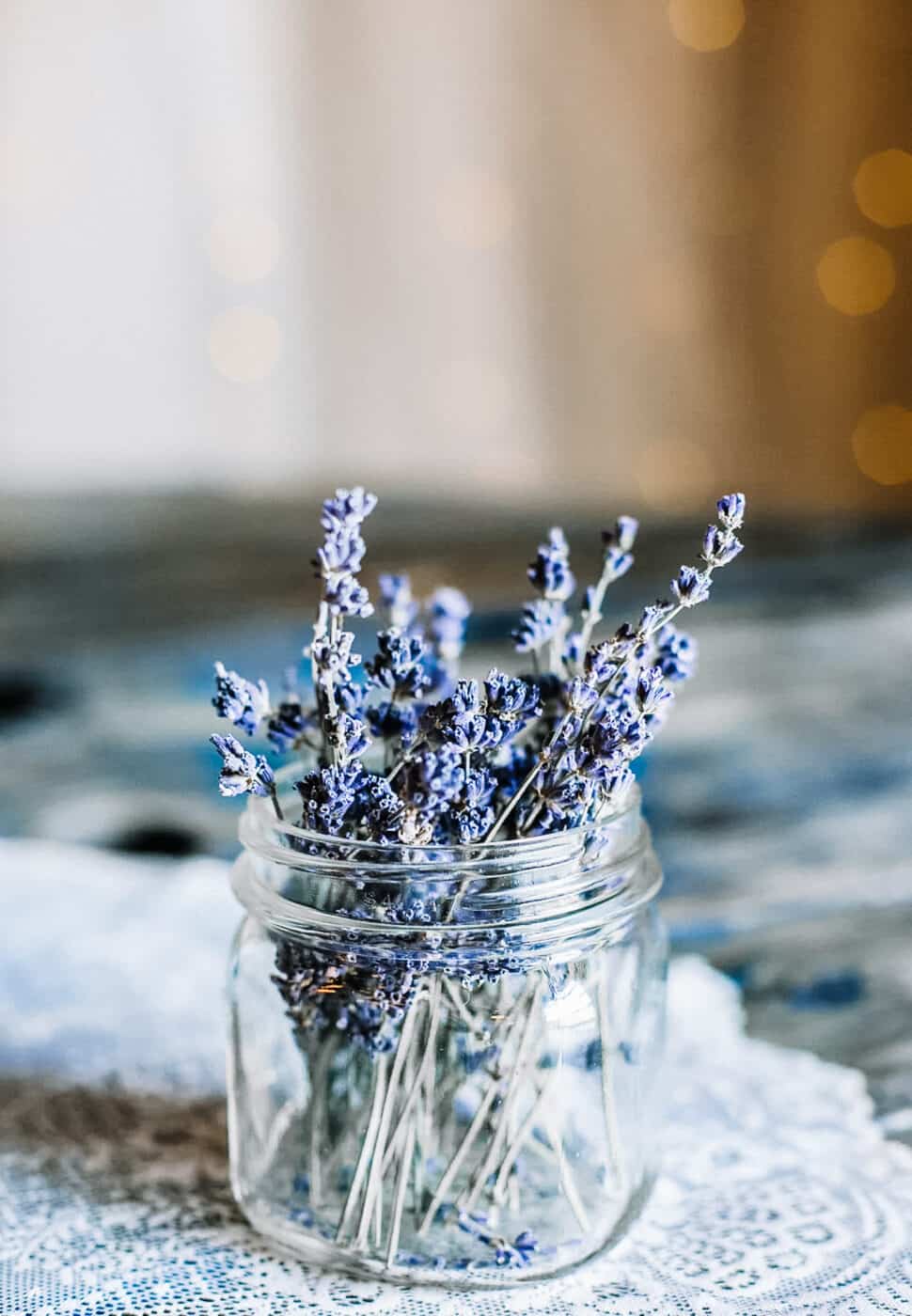Bedtime Snacks to Help You Sleep
Bedroom Must Haves That Make For Great Sleep
Whether you struggle with sleep deprivation night after night, or sleep fairly well most of the time. There are a few bedroom must haves that I share with all my clients. Sometimes the answer for good sleep is a change to something in your bedroom environment.
Bedroom Must Have #1: Cool Temperature
The climate in your bedroom has a huge impact on the quality of your sleep. It consists of two main parameters: temperature and humidity.
The proper temperature in your sleep space can help your body produce melatonin. The sleep hormone, melatonin, increases when your body temperature drops a bit. Your body temperature needs to drop 1-2 degrees in order to fall asleep. Amazingly, the blood vessels in your skin dilate prior to sleep, to facilitate heat loss and help you fall asleep. You can help this process along, too!
The ideal bedroom temperature is 60-70 degrees, so anything much above 70 degrees will make the process of falling asleep much slower, and overall quality of sleep is likely to be lower. If your bedroom is too cool (lower than 60F), however, things won’t get better either. In this case, your feet and hands, which have a lot of blood vessels, will cool down very fast, leading to uncomfortable sensations and disrupted sleep.
Humidity can also make an impact on your sleep. High humidity is pretty common during summer months and has several adverse effects on your sleep, like:
- It makes you sweat. If the air is humid, the sweat from your body won’t evaporate, and you will feel wet and uncomfortable.
- It can contribute to nasal congestions. This evaporation problem can result in fluid build-ups inside your nose, which will lead to congestions, making sleep more difficult.
- It creates a perfect environment for pathogens. High humidity is a perfect condition for fungi and dust mites to grow. These two are the most common home allergens and can provoke hypersensitivity in some people.
During winter months humidity in homes drops, but this also comes with a couple of downsides. As illnesses increase in the colder months, dry air at night can make sleep more challenging. Sleeping next to a humidifier in the winter can help you to feel better and rest more easily.
So, my advice is to adjust your room humidity between 30 and 50% if possible – this is the perfect range, according to the EPA – and regulate it throughout the year (with the help of an air conditioner, humidifier, or other devices) to maintain a perfect climate for sleeping. If you don’t have air conditioning, you can try sleeping with fans and open windows, or cooling blankets.
Bedroom Must Have #2: Your Mattress
For obvious reasons, your mattress has a drastic impact on your sleep quality. You spend a third of your life sleeping, so investing in a good mattress will greatly improve your time spent on your mattress. If you have been sleeping on your current one for more than 7 years, it’s probably time to replace it.
With so many options available I recommend considering the following:

- Choose the right mattress type. Mattresses can be made from foam, latex, traditional innersprings, pillow top, etc. Try different kinds and read about what material may be best for you.
- Consider firmness. Firmness is subjective and its perception is mostly tied to your weight. Medium and medium-firm beds are a good pick for almost any average-weight sleeper, while firmer beds will better suit heavier sleepers. The position you sleep in matters too. Those who snooze on their side should look into softer models, while back and stomach sleepers will feel more comfortable on a firmer mattress.
- Don’t forget about your health issues. Obviously, if you have some back issues or chronic conditions causing pain, they should also be taken into consideration. It’s better to ask your healthcare provider for recommendations in this case.
Bedroom Must Have#3: Deal With External Factors
A sleep-friendly bedroom is a bedroom without any irritants that can suddenly wake you up. In the modern world, these would be all sources of light, noise, and even pets, so you have to minimize their presence in your bedroom as much as possible.
And here’s what you can do:
- 1. Use blackout curtains or blinds. Curtains that block light from the outside are among the best things ever invented. I cannot underestimate their importance, and they are a must have in every adult sleep plan we work on.
- 2. Try noise. No, it’s not a joke, you can really muffle some annoying sounds inside or outside your house with the help of another noise, also known as white or dark noise. And the great thing is that many homes today have a fan which resembles the frequency of white noise very closely. But if you don’t have one, you can purchase a white noise machine or use the background noise setting on your phone or app.
- 3. Switch off. Blue light emitted by gadgets affects your sleep similar to outside noises. To eliminate the negative effect, avoid using your electronic devices at least an hour before bedtime. If you plan to use your phone for white noise, remember to place it across the room from where you sleep.
- 4. Sorry Fluffy! Animal-lovers love to share a bed with their pets. Unfortunately, animals can often disrupt our sleep with their nocturnal or early morning activity. I recommend closing your pet outside your room at night or getting a pet gate for your door. If your pet is a must have in your bedroom, try creating a separate sleep space on the floor with a pet bed.
Bedroom Must Have #4: Add Some Plants

Getting a couple of home plants will not only add some life to your bedroom but also improve the quality of your sleep. Plants like mint, lavender, eucalyptus, or jasmine are great air fresheners and can release soothing scents into the air, helping you fall asleep faster. Plants also emit oxygen and decrease the amount of carbon dioxide through photosynthesis during the day. Thus, by the time you get into your bed, your bedroom air will be more oxygenated, which is another factor contributing to sound sleep. If you live in warm climates, you can get yourself such plants as citronella, floss flower, or geranium – they excel at repelling mosquitoes and other annoying small insects from your bedroom.
Bedroom Must Have #5: YOUR Sanctuary
If there’s one take-away from my bedroom must haves list, let it be this. Your bedroom is your sanctuary at the end of a long day. You should walk by your room and want to go in. For that reason, I keep my bedroom free of anything that brings me stress. I don’t pay bills, do work, or have clutter in my room. I even fold laundry in another part of the house. If you do this with your own sense of design and character your brain will create positive associations with the time spent in this room, which, in turn, will promote a better sleep experience.
Some small changes like paint can help make a low cost change. Be careful here: Bright colors may have a stimulating effect on your brain, keeping you awake instead of aiding in falling asleep. Opt for neutral, calming colors instead.
Also, add some personal touches, such as photographs, paintings, drapery, etc. – whatever makes you happy. Clean out items that don’t bring you happiness, that cause you stress, or take up unnecessary space. This, (and all my must have tips!) will help you turn your sleeping space into your sleep sanctuary.


